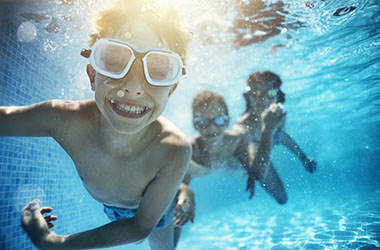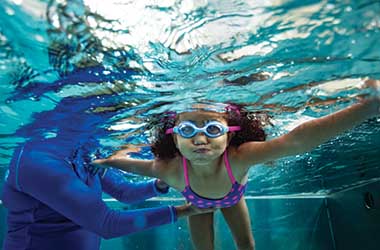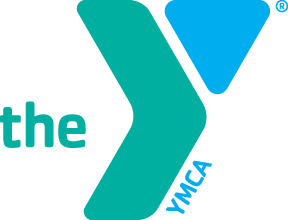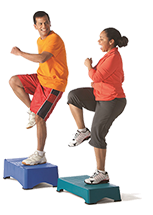Let’s Keep Our Summer Safe
Summer is just around the corner and New Englanders will be enjoying time at pools, at the lake, and at the ocean. Kids need to learn the joy and risks of being around water. Teaching children how to be safe around water is not a luxury; it is a necessity. The YMCA’s swim lesson program can help you make sure they learn essential water safety skills, which can open up a world of possibilities for them to satisfy their curiosity safely.





Swim Lessons
The Y is “America’s Swim Instructor” and the most accessible community resource to prevent drowning and encourage a lifelong enjoyment of swimming. The Y introduced the country to the concept of group swim lessons more than 100 years ago (1909), and each year, the Y teaches more than a million children invaluable water safety and swimming skills. As one of the largest community-based organizations in the country, the Y owns or manages over 2,000 pools. Thanks to its size and reach, the Y is in a unique position to help bridge the gap in the delivery of swim lessons and water safety education in the U.S.—especially in underserved communities. According to YMCA Aquatics Director Kevin Morton, “Swimming is a life skill. Drowning is something that can happen quickly and silently and we at the Y are committed to giving every parent, child, and adult the tools needed to stay safe around the water for themselves and for their family.”
Why Take Swim Lessons?
Through learning how to perform a sequenced set of skills over eight lessons of 30-45 minutes each, the risk of drowning is reduced, giving your child confidence in and around water.
A typical session includes:
-
Exercises to help kids adjust to being in water
-
Instruction for beginner swimmers in “Jump, Push, Turn, Grab” and “Swim, Float, Swim,” two skill sets kids can use if they unexpectedly find themselves in the water.
-
Specific safety topics, like what to do if you see someone in the water who needs help
-
Fun activities that reinforce skills
There are Three General Categories of Y Swim Lessons:
Swim Starters develops water enrichment and aquatic readiness in children ages six months to three years. This category focuses on developing swim readiness skills through fun and confidence-building experiences. Parents also learn how to supervise children in the water, how to prevent accidents and how to plan for emergencies.
Swim Basics develops personal water safety and basic swimming skills in students of all ages. Swimmers develop a high level of comfort in the water by practicing safe water habits, engaging in underwater exploration, and learning how to swim to safety and exit if they fall into a body of water.
Swim Strokes introduces and refines stroke technique in older students (school age, teens and adults). Having mastered the fundamentals, students learn additional water safety skills and build stroke technique, developing skills that prevent chronic disease, increase social-emotional and cognitive well-being and foster a lifetime of physical activity.
Help Keep Your Children Safe
Drowning can happen nearly anywhere with standing water. But, as a parent or caregiver, you can’t keep your children sidelined. You need to equip them with the tools they need to be confident in and around water so they don’t lose out on the health benefits of exercise, the opportunities to bond with family and friends and the sense of accomplishment when they learn new skills.
Enroll in a YMCA of Greater Nashua’s Swim Lessons Program today! The Y’s swim lesson programs are available to all kids and families.
As always, the YMCA offers financial assistance to those families that are struggling. Financial hardship not a barrier to a summer of camp fun for our youth. Information is available at the Welcome Center of any YMCA branch.
Water Safety Tips
As temperatures rise, kids want to cool off, whether that is in home pools, ponds, lakes, rivers, streams, or oceans. And that means the risk of drowning is as prevalent as ever. With National Water Safety Month in May, now is the time for parents and caregivers to reinforce the importance of equipping their kids with essential water safety skills.
As “America’s Swim Instructor,” the Y, nationally, typically teaches more than 1,000,000 children invaluable water safety and swimming skills each year. With many pools closed last summer due to COVID-19, the Y wants to make sure parents, caregivers and children make water safety a top priority as they head back to the water this year.
The Y is providing five tips to ensure a safe and enjoyable swimming experience for all.
-
Never swim alone or without a water watcher. When children are swimming, make sure they are actively supervised at all times. Teach your children that they should only swim in locations where a lifeguard is on duty, or where a responsible adult agrees to watch the children in the water without distractions.
-
Supervise your children whenever they’re in or near water. Whether it’s bath time or taking a dip in a pool or lake, make sure your children are within arm’s reach at all times.
-
Don’t engage in breath holding activities. Children should not hold their breath for a prolonged amount of time while swimming, as this can cause drowning and has several other severe physical side-effects.
-
Wear a life jacket: Inexperienced or non-swimmers should wear a Coast Guard-approved life jacket.
-
Don’t jump in the water to save a friend who is struggling in deep water. If a child finds their friend in deep water unexpectedly, their natural reaction may be to jump in the water to try to save them. Even if a child is a great swimmer, a panicked person will overpower them and easily pull the rescuer underwater. The Y’s Safety Around Water program teaches the “reach, throw, don’t go” concept of using a long object to reach for them and pull them to safety. By using this technique children can help their friend without compromising their own safety.
To learn more about the Y’s Safety Around Water and Y Swim Lessons program, visit www.ymca.net/watersafety.
Stay up to date on what's happening in your community! Subscribe to our blog for events, announcements, and stories.








